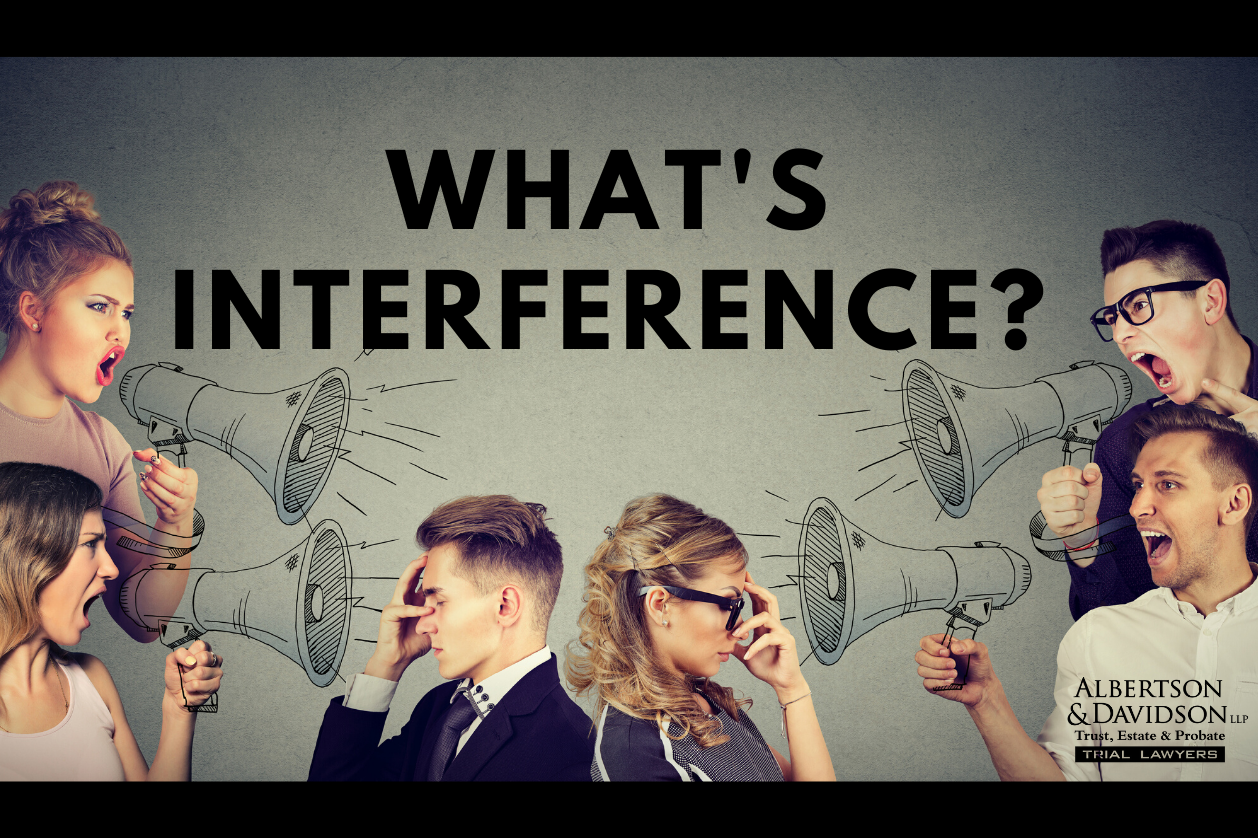
My friend promised to leave me a big gift as part of their estate, but when my friend died I was left nothing. Can I sue?
Well that all depends on the circumstances surrounding your friend’s estate plan. If your friend simply changed their mind. Or worse yet, if your friend lied to you, then you probably cannot do anything about that in court. When someone promises to leave you a gift, it generally is not enforceable unless you promised something in return. For example, if you promised to take care of the decedent, and you were in fact doing that, then you may be able to enforce that promise. But otherwise, a promised gift is generally not legally enforceable.
However, if you were going to receive a gift and someone else interfered with that gift, then you may have a case. But that depends on the type of interference involved. For example, if someone talks to your friend and convinces them to remove you from their estate plan, that may not be enough. People influence each other all the time. Trying to convince someone to disinherit you is not wrong if it’s not coercion or duress.
That can all change, however, if the person doing the “convincing” goes too far. For example, lying to the decedent could form the basis of wrongful interference—assuming it is a material lie. If the influencer says you are stealing from the decedent, when you are not, or that you are harming them in some way, that could be a material lie.
Another action that goes too far is coercion. Coercion is another word for undue influence. When someone isolates an elder, controls their access to food or medicine, they can gain an advantage over them. Once they have that advantage, they can use the position to force the elder to change the estate plan—removing you as an heir.
In other words, the type of interference that matters for an intentional interference lawsuit is the wrongful type. Those actions that are bad in and of themselves. Fraud, coercion, duress, these are all bad acts that could be sued to force an elder to change their estate plan. When that occurs, then you may have the right to sue under intentional interference with an expected inheritance.
If the interference is just pestering, or whining and complaining, that would not be enough to form the basis of an intentional interference lawsuit. Of course, it can be difficult to know when the influencer’s actions cross the line. It depends heavily on the physical and mental condition of the elder, the actual actions used by the influencer, and the surrounding circumstances that existed during the influencing. Your case may be stronger or weaker based on these factors.
An experienced estate planning attorney can you navigate your legal options. Contact Albertson & Davidson now.
